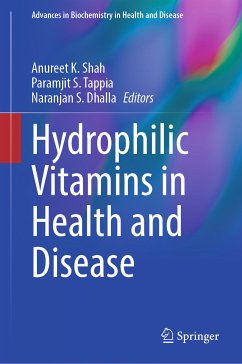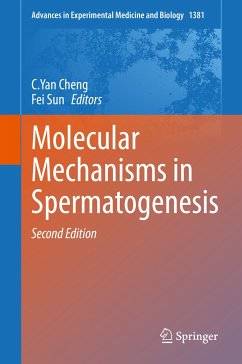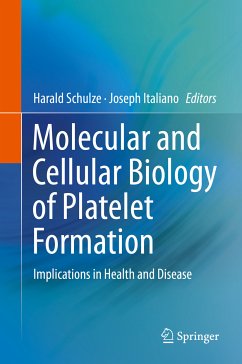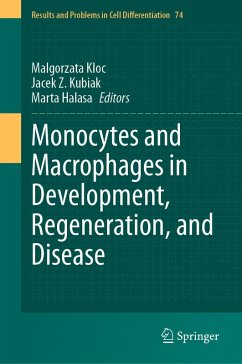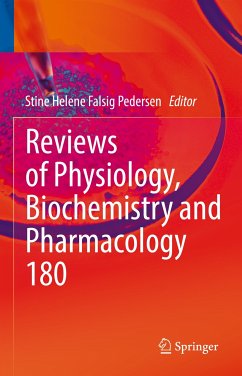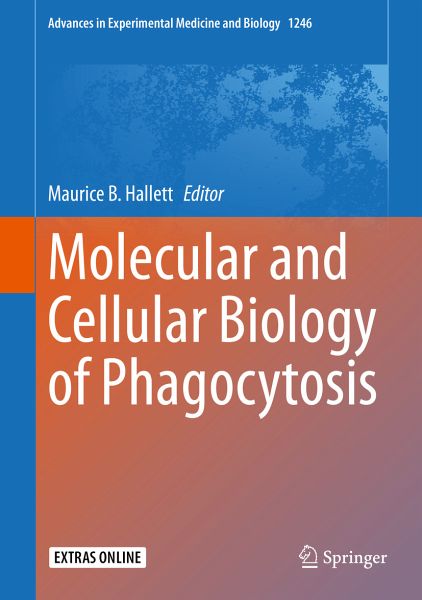
Molecular and Cellular Biology of Phagocytosis (eBook, PDF)
Versandkostenfrei!
Sofort per Download lieferbar
112,95 €
inkl. MwSt.
Weitere Ausgaben:

PAYBACK Punkte
56 °P sammeln!
Phagocytosis is the engulfment of particulate matter by cells. It is a fundamental (and probably "primitive") cell biological process which is important in single celled organisms such as amoeba; multicellular animals including coelenterates; and in higher animals. In humans and other mammals, specialised immune cells (phagocytes) utilise phagocytosis in their crucial role of engulfing and destroying infecting microbes. Yet, surprisingly, the biophysics and biochemistry underlying the process has only become clear recently with the advent of genetic manipulation and advances in single cell ima...
Phagocytosis is the engulfment of particulate matter by cells. It is a fundamental (and probably "primitive") cell biological process which is important in single celled organisms such as amoeba; multicellular animals including coelenterates; and in higher animals. In humans and other mammals, specialised immune cells (phagocytes) utilise phagocytosis in their crucial role of engulfing and destroying infecting microbes. Yet, surprisingly, the biophysics and biochemistry underlying the process has only become clear recently with the advent of genetic manipulation and advances in single cell imaging. In this volume, the aim is to bring together recent fundamental advances that give a clear picture of the underlying mechanism involved in phagocytosis. Not only is this an important topic in its own right, but a full understanding of the process will have a potential impact on human medicine, since as antibiotics become less effective in fight infection, researchers are looking at alternative approaches, including enhancing the "natural" immunity brought about by immune phagocytes.
The aim is to provide a comprehensive volume on the topic, with separate chapters on identified recent advances, each written by the major contributors in each area. In addition, the volume will attempt to give a wider overview than is often the case in single author reviews, with an emphasis here on the cell biological understanding of phagocytosis using biophysical approaches alongside the biochemical and imaging approaches.
The aim is to provide a comprehensive volume on the topic, with separate chapters on identified recent advances, each written by the major contributors in each area. In addition, the volume will attempt to give a wider overview than is often the case in single author reviews, with an emphasis here on the cell biological understanding of phagocytosis using biophysical approaches alongside the biochemical and imaging approaches.
Dieser Download kann aus rechtlichen Gründen nur mit Rechnungsadresse in A, B, BG, CY, CZ, D, DK, EW, E, FIN, F, GR, HR, H, IRL, I, LT, L, LR, M, NL, PL, P, R, S, SLO, SK ausgeliefert werden.



